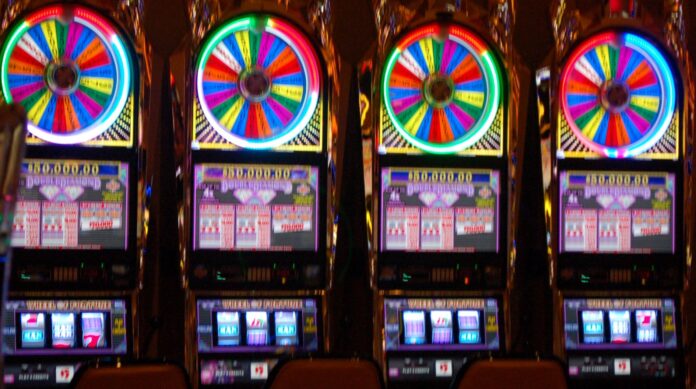The City of Toledo wants to start collecting taxes on the gambling winnings of nonresidents the same way it already does with residents.
City Council will vote on the proposed addition to the Toledo Municipal Code during its Aug. 14 meeting. Nonresidents would be taxed at 2.25 percent, the same rate as residents. The revenue would go into the city’s general fund.
Taxable gambling winnings include more than just Hollywood Casino Toledo jackpots. Lotteries and raffles as well as the fair market value of bonds, cars, houses and other noncash prizes won or earned within Toledo city limits would also be taxable.
City of Toledo Law Director Adam Loukx said the legislation would make Toledo’s tax fairer.
“A lot of people are coming to Toledo from Oregon, Maumee, Perrysburg, let alone people coming from out of state,” Loukx said. “People who live across the street [from Hollywood Casino] in Rossford are not residents. I think it’s a fair thing to do, would fall under the realm of what other cities already do and, certainly because of the change in the state law, is one that’s workable as well.”
House Bill 386, which was enacted in June, requires casinos in Ohio to withhold local tax on all winnings of $1,200 or more.
“At that point, if you’re a resident, we would keep it, but for nonresidents we would have to refund it if a return is filed,” Loukx said. “Right now we have no legal authority to tax nonresidents.”
Councilman George Sarantou, chairman of the finance committee, said the legislation would bring Toledo in line with other Ohio cities, including Columbus and Cincinnati.
“It’s well within the rights of the city,” Sarantou said. “Columbus just enacted this.”
Under legislation passed July 30, Columbus will begin taxing residents and nonresidents on gambling winnings at 2.5 percent. Previously Columbus had taxed only earned income, said Melinda Frank, of the City of Columbus income tax division administration. The tax will be retroactive to June 1 once it passes its 30-day referendum period.
Cincinnati taxes both residents and nonresidents 2.1 percent for gambling winnings. Cleveland taxes residents on gambling winnings at a rate of 2 percent, but does not tax nonresidents.
Detroit taxes residents at 2.5 percent and nonresidents at 1.25 percent.
Horseshoe Casino Cleveland became the first casino in the state when it opened May 14. Hollywood Casino Toledo opened May 29. Hollywood Casino Columbus is set to open this fall while the Horseshoe Casino Cincinnati is set to open in spring 2013.
Toledo began taxing residents on gambling winnings around 2004.
“In those days we didn’t have the casino and nonresident taxation was not really that much of an issue,” Loukx said. “We did have the horse track, but we were content to just go with resident income for all those years. Then, of course, this year the casino opened and has been doing very well and, with the enactment by the State of Ohio of House Bill 386 that provides for the withholding of gambling winnings at a certain threshold, it would be consistent with the cities of Cincinnati and Columbus and prudent as well.”
It’s still too early to predict how much additional revenue the City of Toledo would collect from taxing nonresidents, said John Bibish IV, chief of collections for the City of Toledo.
“It’s a very positive piece of legislation for the city. It’s certainly great for the general fund,” Bibish said. “But I don’t think anyone can honestly predict a definite amount. We really don’t know and, until we close the books, we really won’t know. No one is able to do anything but speculate and when it comes to revenue, it’s not wise to do that.”
Penn National Gaming, which operates Hollywood Casino Toledo, declined to comment.
City Council’s next meeting is 4 p.m. Aug. 14 in City Council Chambers at One Government Center.























